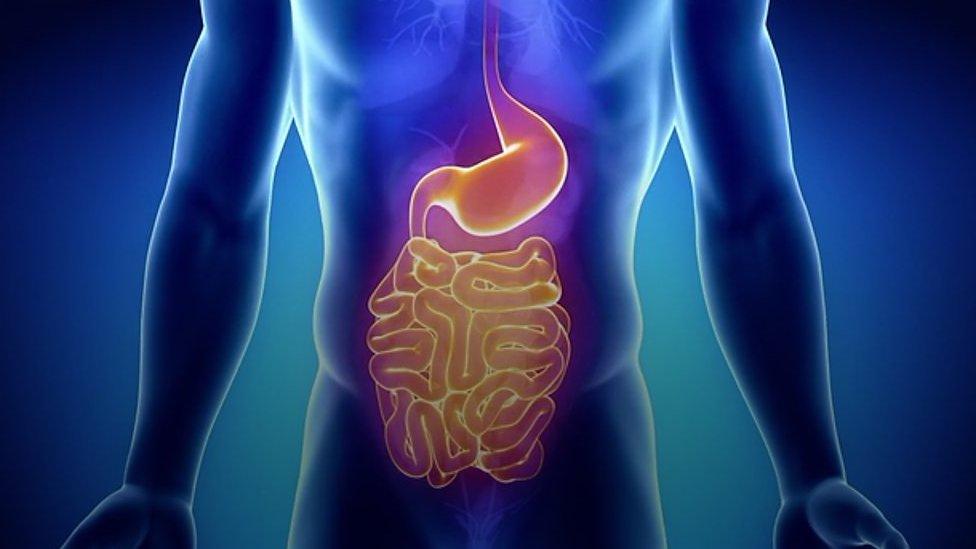Coeliac disease: Research identifies patients to test
- Published

The only treatment available for coeliac disease is a gluten free diet
Targeted testing of people with a range of symptoms could improve diagnosis of coeliac disease, a study has found.
Around one in 100 people in the UK have coeliac disease, where a person's immune response to gluten attacks the tissues in their digestive system.
Researchers at the University of Bristol analysed 191 studies, reporting on 26 potential signs, symptoms and risk factors.
The research could "streamline" getting a diagnosis.
Only one in three people with coeliac disease are thought to have been diagnosed.
With some coeliac patients not showing symptoms and others experiencing non-specific symptoms such as indigestion or bloating, diagnosis can be difficult.

What are the signs of coeliac disease?
Symptoms can range from mild to severe, and often come and go.
Diarrhoea is the most common symptom of coeliac disease, caused by the body not being able to fully absorb nutrients (malabsorption)
abdominal pain
bloating and flatulence (passing wind)
indigestion and constipation
vomiting (usually only affects children)

Dr Martha Elwenspoek, who led the study, said: "Getting a diagnosis for coeliac disease is really important for people as it can be the first step in getting appropriate treatment and reducing negative effects later in life."
The research fellow at NIHR ARC West, who funded the research, and Bristol Medical School added: "Our study pinpoints which symptoms warrant further testing for coeliac disease, which could help streamline the process of getting a diagnosis and in turn improve outcomes for those patients."
Who is at greater risk?
Although guidelines recommend adults and children "at high risk" of coeliac disease should be offered testing, it has not been clear until now which groups are at high enough risk, or which symptoms should justify routine testing.
The study found strong evidence that people with family history of coeliac disease, dermatitis herpetiformis (a skin condition caused by a reaction to gluten ingestion), anaemia, type 1 diabetes, migraines, HLA DQ2/8 risk genotype, osteoporosis, or chronic liver disease are more than twice as likely to have coeliac disease than others.
Additionally, close relatives of people with coeliac disease are three times as likely to have it themselves. These signs and symptoms could therefore help identify patients who would benefit from testing.
Researchers for the study were based at the NIHR Applied Research Collaboration (ARC) West, the University of Bristol, University of Southampton, the Royal Hospital for Sick Children, University College London and York Teaching Hospital NHS Foundation Trust.

Follow BBC West on Facebook, external, Twitter, external and Instagram, external. Send your story ideas to: bristol@bbc.co.uk , external
Related topics
- Published23 May 2019
